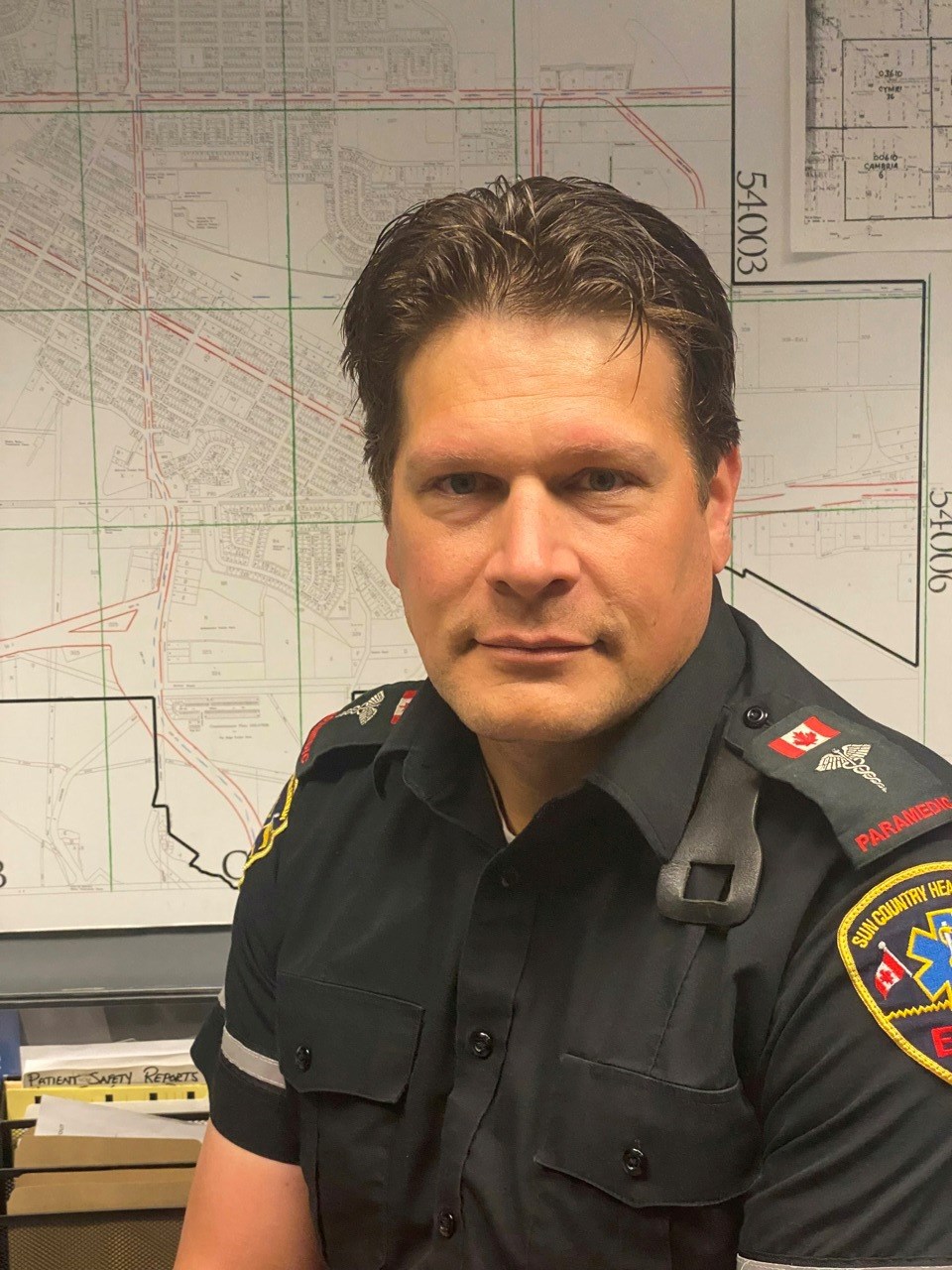ESTEVAN — When Clay Groenveld started working as an emergency medical technician in 1999, it was essentially his second career choice.
He wanted to be a firefighter, but his eyesight wasn't good enough when he was young. He had taken his EMT basic course as part of his firefighter application, so he shifted his career path to the EMS. It proved to be a great decision.
Groenveld started working in Balcarres in 1999 and remained until 2010. Then he went to Lestock a year and a half, returned to Balcarres for two years, and then spent a year and a half studying to become an advanced care paramedic (ACP). He moved to Estevan in 2014, and has remained in the Energy City ever since.
"Estevan has been good. Estevan was a good fit for my family as well," said Groenveld, who is married with three children. "Estevan, being a great city, is what made coming to Estevan with my family an option."
ACPs have lots of training. Groenveld said they know how to administer medication for advanced cardiac life support or for pain control. They also possess advanced skills in which they can open airways in the trachea.
Each year he continues his education and has to meet mandatory criteria. They have certain education opportunities in Regina, or instructors will come to them in Estevan.
He cited the example of advanced airway days in Regina, when providers of all levels teach new techniques, theory and scenario-based training that he wouldn't have access to normally.
Groenveld is glad he remained in EMS.
"It's worked out," said Groenveld. "I do a good job, I enjoy doing the job and I guess you can't ask for much more than that."
The COVID-19 pandemic brought challenges, with constant changes in standards, but EMS remains his calling.
He knows that he is making a positive impact in people's lives. They call the EMS in their time of need, and he has the skills to help them. Each day is a "feel-good day".
Estevan also has a very good team. There is a good range of ages, experiences and training. They have approximately 150 years of experience working on the ambulance, including a couple of people with 30 years on the ambulance and another with 25.
Groenveld said it takes a certain type of person to work in EMS, but he said it's an excellent choice for somebody who doesn't want to work at a desk or doesn't want to do the same thing every day.
"Every day on an ambulance is a new day. You're never going to see the same thing twice," he said.
EMS employees will definitely see, hear and experience things that will test them as an individual. They are on "the front row" to a lot of people's worst days. They see lots of emotional and physical trauma, and the job can be mentally draining.
"The ability to cope, finding some way to be resilient in the face of those challenges, is something that some people can do and some people can't. That being said, you can learn to cope with those kinds of things."



